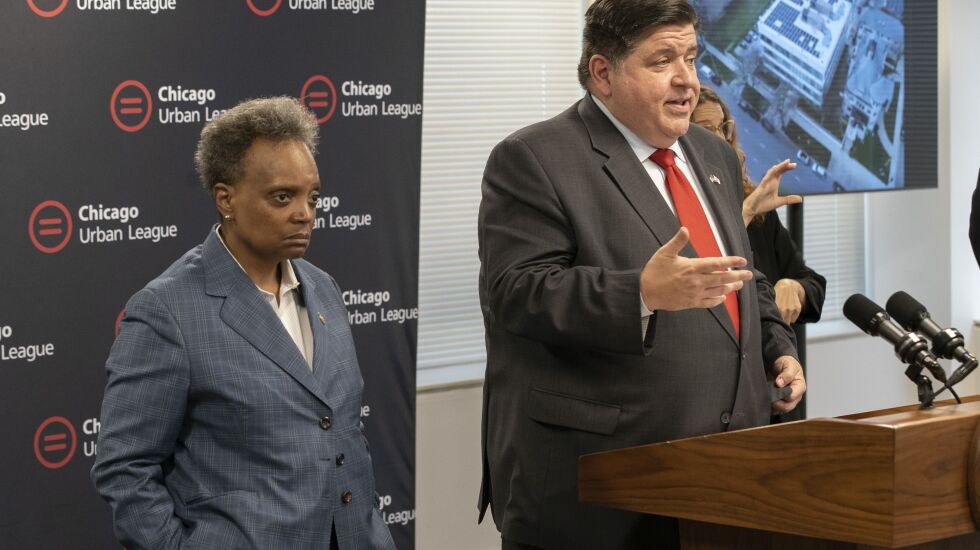
Chicago’s $422.2 million deal to partially power some of its biggest assets with renewable energy is an example of transitioning to municipal green energy that cities around the country should follow.
But it also is not enough, even for Chicago, which will still get a little less than half of its energy directly from renewables when the new energy is flowing in, although the city will also buy renewable energy credits — essentially renewable energy from other sources — for small and medium-sized buildings and streetlights.
Under a five-year agreement Mayor Lori Lightfoot announced Monday, city buildings that use the most energy — the Jardine Water Purification Plant, the Harold Washington Library Center and buildings at Midway and O’Hare airports — will get much of their power from a new downstate solar energy farm.
The agreement will help Chicago reach the goal in its 2022 Chicago Climate Action Plan, announced on Earth Day, of reducing emissions in the city by up to 62% by 2040. Environmentalists and others who have been pushing for wider use of renewable energy in the state applauded the agreement.
The energy will be provided by Constellation, which owns the power generation units previously owned by Exelon, in collaboration with Swift Current Energy. The new Double Black Diamond solar farm will have the capacity to generate 593 megawatts annually.
The historic investment, which begins in January, reportedly won’t bring power from the new solar energy installation to school buildings, the CTA or the CHA. And it doesn’t cover all counties around the state. Those counties should be working to follow Chicago’s footsteps, including Cook County, which is discussing doing so.
What’s ground-breaking here is that Chicago is using its buying power to help build renewable energy generation that otherwise might never have moved off the drawing boards. But the agreement is not a magic bullet that will keep the city from contributing to climate change. For example, residences and small businesses also will need to transfer to renewable energy if Chicago is going to stop sending greenhouse gases into the atmosphere.
The timing could hardly be better. Climate change is causing one overwhelming catastrophe after another: Kentucky and North Carolina floods, more widely spread infectious diseases, rising sea levels, Western wildfires and drought, stronger storms and severe heat waves and frigid cold snaps in areas that have not experienced them and were not prepared. Insurance costs are rising.
Chicago’s new energy deal complements the 2021 Illinois Climate and Equitable Jobs Act, which includes provisions to phase out carbon emissions from the energy and transportation sectors. Measures in the agreement will comply with CEJA’s equity goals, and Gov. J.B. Pritzker said work on the solar farm will create nearly 1,000 jobs.
Once the new renewable energy is flowing, Chicago is expected to reduce its carbon footprint by the equivalent of emissions spewed out by 62,000 passenger vehicles. That’s a significant step.
Chicago and Illinois clearly have momentum on renewable energy. Separately from the solar energy deal, the city also has begun transitioning to electric municipal vehicles and plans to retrofit South and West Side libraries with energy-saving upgrades and rooftop solar panels.
With the U.S. Senate’s passage of the Inflation Reduction Act, which is designed to cut national greenhouse gas emissions by 37% to 41% by 2030 compared with 2003 levels, America is finally on a path to significantly addressing climate change.
Yes, the nation will need strong and continued efforts at every level of government to shield us from the worst effects of climate change.
But with its new renewable energy deal, Chicago is showing it is willing to play its part.
The Sun-Times welcomes letters to the editor and op-eds. See our guidelines.







